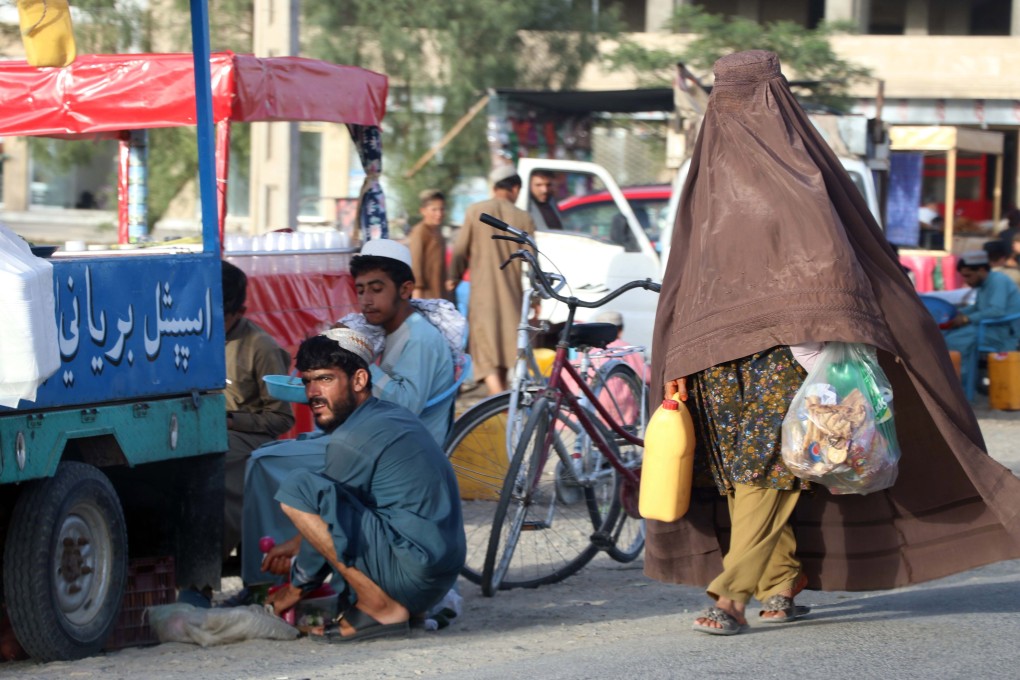Taliban crackdown on Afghan women escalates while world looks away, report finds
- Afghanistan has seen a surge in gender-based violence, child brides and forced marriages since the Taliban takeover, Amnesty International found
- A shocking new report details how women arrested for a vaguely defined offence of ‘moral corruption’ are beaten, tortured and threatened into silence

She was threatened and beaten after being arrested this year for appearing in public without a male chaperon, known in Arabic as a mahram.
“They were calling me a prostitute [and] a b**** … The one holding the gun said: ‘I will kill you, and no one will be able to find your body’,” she told the rights group Amnesty International.

These harrowing details came from the group’s report titled “Death in Slow Motion: Women and Girls Under Taliban Rule”, which was released on Wednesday. It highlights in painstaking interviews the extent of abuse and restrictions that women and girls have faced in Afghanistan.
“This suffocating crackdown against Afghanistan’s female population is increasing day by day,” said Agnès Callamard, Amnesty International’s secretary general.
“The international community must urgently demand that the Taliban respect and protect the rights of women and girls,” she said, adding that every detail of their lives is now heavily controlled.